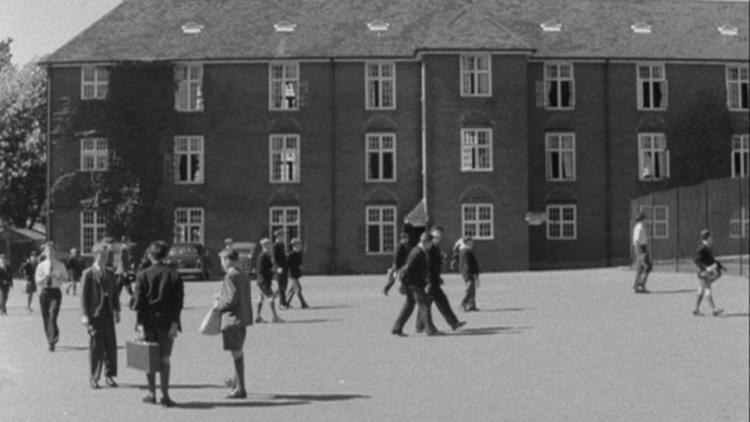
It is unfortunate that the debate on grammar schools has become so intensely politicised and so dramatically polarised.
Grammar schools are either reviled as an instrument for deepening inequality or celebrated as a medium for promoting social mobility. This ‘either-or’ posturing has dominates the discussion in response to reports that that Theresa May favoured an education policy oriented towards scrapping the ban on new selective schools.
Yet the impact and influence of selection in education is an empirical question that depends on social context, the pedagogic approach adopted by the schools and on wider cultural attitudes.
Consequently the experience of the era of the ‘golden age’ of grammar schools offers little guidance for policy-makers today.
Family background was irrelevant
During the 1950s and the 1960s grammar schools were associated by many ambitious working class and lower middle class people with the prospect of social mobility. It probably was a vehicle for social mobility. I use the word ‘probably’ for the simple reason that this was an era where in any case there was greater potential for social mobility than today.
The contribution of grammar schools to social mobility in this period of relative prosperity is far from clear. However at the very least grammar schools promoted an ethos of meritocratic education and promised an environment in which intellectually capable children could be stretched, regardless of their family background.
11-plus tutoring was unheard of
At any rate the meaning and consequence of selective education in the fifties and sixties is manifestly different to now. Unlike today, children sitting the 11-plus tended not to perceive the test as a matter of life and death. The kind of intense private 11-plus tutoring to which far too many children sitting this exam today are subjected was unheard of.
Individuals who succeeded in getting into grammar schools in the 1960s and early 1970s report that they felt a sense of achievement. Those who were not successful naturally felt disappointed but did were not necessarily overwhelmed by a sense of failure.
The current unhelpful distinction between successful and failed/sink schools had not yet taken hold.
Comprehensive education enjoyed greater valuation than today. Moreover, the relation between the different type of schools was far more fluid than today.
For example, in some parts of the country grammar schools worked closely with secondary moderns. In some cases individual students who showed that they were capable of a high standard of achievement in a secondary school were given the opportunity to move over to a grammar. Such opportunities for entering a grammar school from a comprehensive are far less likely today.
Grammar schools today will have negative consequences
In the current climate the promotion of selective education will have none of the benefits that were associated with grammar schools. They would have the negative consequence of distracting attention from confronting the challenge of raising expectations of all children and stretching them to the utmost of their abilities.
Worse still the introduction of a new generation of grammar schools today would simply reward those pupils whose parents have the resources to finance private tutoring and penalise those able children whose families do not have the cash for this purpose.
The experience of Kent demonstrates the socio-economic and cultural problems associated with the 11-plus.
Parents who wish to prepare their children for a grammar education understand that employing a private tutor is essential for the realisation of their objective. Consequently a key determinant of success is the availability of financial resources rather than what a child has achieved through the course of their schooling.
The intake of most Kent grammar schools is composed of two types of children.
First, here are those who have proven themselves to be the most successful at learning and taking advantage of the opportunities provided by their schooling.
The second group consists of children who have been methodically trained by private tutors to pass their 11-plus. Without the input of their private tutor it is unlikely that they would have gained a place in a grammar school. Sadly many children, who are no less able than those who make up this second group but whose parents could not afford to hire a tutor have little chance of getting into a grammar school.
Grammar education rewards cash, not achievement
Consequently the meritocratic ethos associated with grammar education is today subverted by practices that reward hard cash rather than achievement.
Even worse in the current competitive climate dominating education, schools that cater to children who do not pass the 11-plus are not regarded as different but as inferior to grammar schools. In such circumstances selection is likely to intensify socio-economic inequality rather than assist the objective of social mobility.
[Source:- tes]











 Post-Quantum (or PQ) is the British cybersecurity startup that just won’t give up on its strange, unsettling vision of the future. Techworld recently caught up with it for the second or third time since it was founded in early 2009, still toiling away making software designed to cope with a world where quantum computers have smashed today’s encryption to smithereens.
Post-Quantum (or PQ) is the British cybersecurity startup that just won’t give up on its strange, unsettling vision of the future. Techworld recently caught up with it for the second or third time since it was founded in early 2009, still toiling away making software designed to cope with a world where quantum computers have smashed today’s encryption to smithereens.




